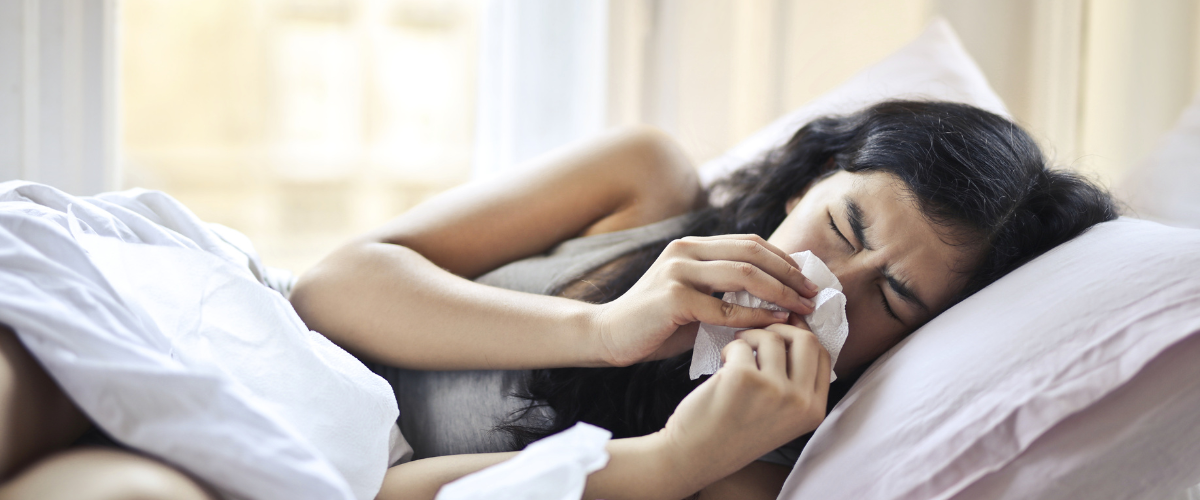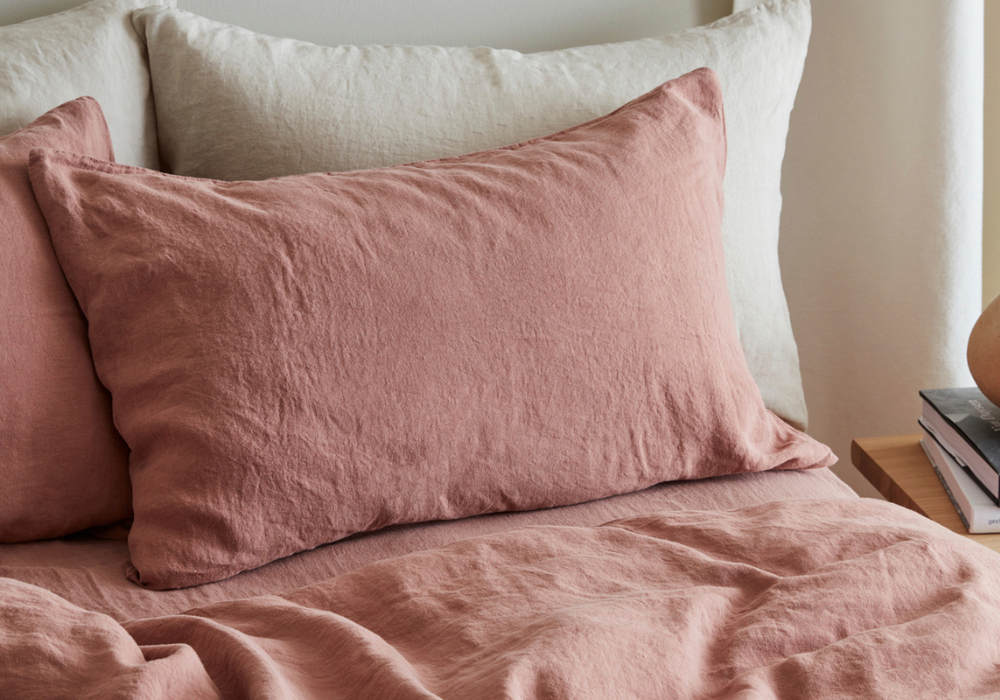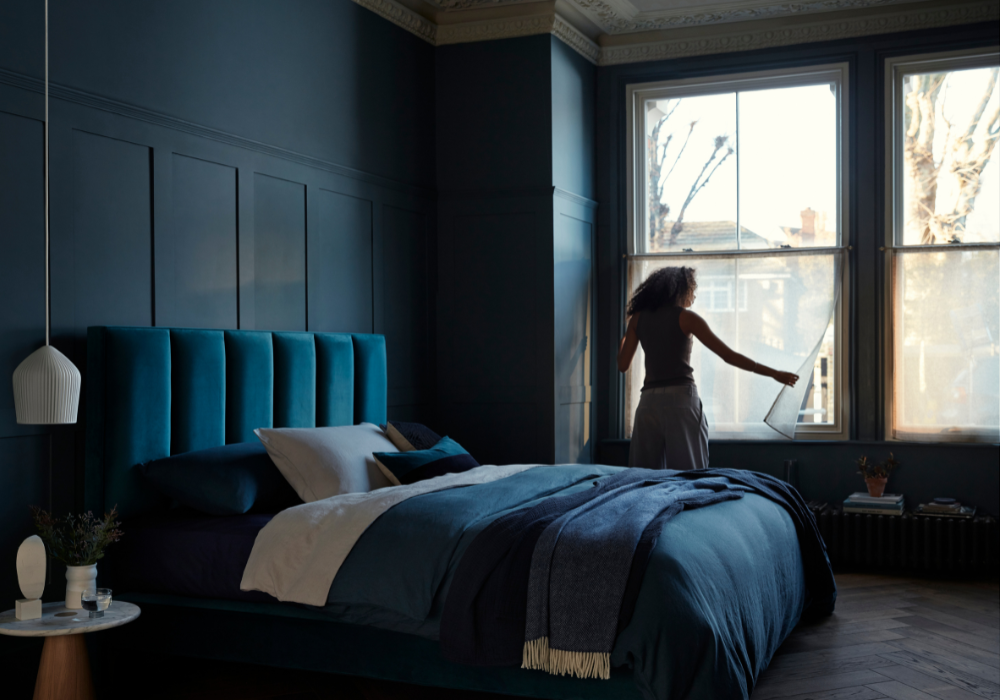Tips On Sleeping With Hay Fever

No one enjoys having red, swollen eyes and a constant runny nose, but when the pollen count rises and the weather gets warmer, as many as 1 in 5 Brits experience these hay fever-like symptoms.
With breakout searches for ‘can you get hay fever in February’ alongside a 120% increase in searches for ‘hay fever injections’, many of us are experiencing an earlier start to allergies this year than normal.
However, congestion caused by allergies can greatly impact the quality of our sleep, which in turn can have a knock on effect on our physical and mental health, warns Dr Lindsay Browning, a psychologist, neuroscientist and sleep expert here at And So To Bed.
5 doctor-approved tips for sleeping with hay fever symptoms
1. Keep your head elevated
Symptoms associated with an allergy are usually worse at night. This is because when we lie down, the mucus cannot drain in the same way it would when gravity is helping, leading to disturbed breathing or a cough caused by a post-nasal drip.
For this reason, you should aim to keep your head slightly elevated in bed if you are struggling with allergies. You might want to try propping your head up with an extra pillow and shifting your sleeping position so you’re slightly more seated. This will bring gravity back into the mix, allowing excess mucus to drain and not pool and lessening the irritation.
2. Regularly clean your bedroom, bed and pyjamas
When you’re trying to sleep with hay fever, it's important to stay on top of regularly cleaning your bedroom and bedding to prevent dust (and allergens) from building up. Ensure you frequently vacuum the carpet and your mattress, wash your bedding and dust any furniture in your room to make sleeping easier.
It’s also important to avoid wearing any daytime clothes in bed, as these are likely to have pollen on them. Instead, change into your PJ’s before you get into bed and stay on top of regularly washing your clothes to minimise the risk of bringing pollen in.
If you have pets, try to avoid letting them into your bedrooms - as difficult as this may be - since pet hair and dander can increase allergens in bed, which will enhance your hay fever symptoms at night. Plus, your pet may have picked up pollen in their fur which can brush off into your bedroom overnight, especially if you share a bed with them.
Also after washing your sheets and nightwear, be cautious about drying them on the line outside if you suffer from allergies. Although drying clothes and bedding naturally outside is better for the environment, pollen can be easily picked up by warm air and cling to your washing, so you may want to avoid outdoor drying when pollen counts are high.
To combat this, be mindful of high pollen count times and hang your washing to dry in the middle of the day when there tends to be less pollen lower to the ground. It’s also important to choose the location wisely when it comes to drying your clothes and avoid hanging in areas where there are lots of trees, flowers or grass, as there will be higher levels of pollen there too.

3. Shower before bed
Taking a shower before bed will wash away any pollen that may have clung to your skin and hair from outside. Instead of transferring this onto your bed linen, make a habit of washing yourself before bed.
This is also a great tip for when we still start to experience warmer evenings again as a cool, not cold, shower will help to lower your body temperature making it easier to drift off to sleep.
4. Keep windows closed during the day
It might be tempting to open the window a fraction to let some fresh air in on a sunny spring day, however, if you’re a hay fever sufferer, you try to keep your windows and doors closed to prevent pollen from entering your home.
Having your windows open during the day will allow pollen particles to blow in and settle on your lounge wear, bedding and other soft furnishings within your bedroom, making your symptoms much worse when it comes to bedtime.

5. Invest in an air purifier
Investing in an air purifier is useful for those with hay fever as it will remove pollen and dust particles from the air that trigger your symptoms. This can be extremely beneficial for clearing your sinuses, which should allow you to fall asleep quicker and more comfortably as a result.
After following these steps, elevate your sleep even more by booking a consultation with one of our in-store experts.
Dr Lindsay Browning is the resident sleep expert for And So to Bed. She offers sleep therapy at Trouble Sleeping and is the author of the self-help sleep book, Navigating Sleeplessness.
-
Posted by Dr Lindsay Browning
20th March 2024


